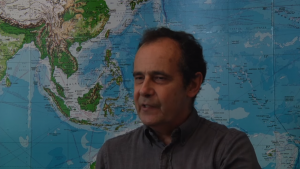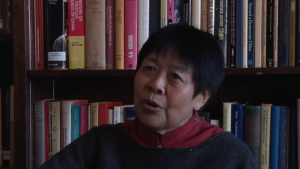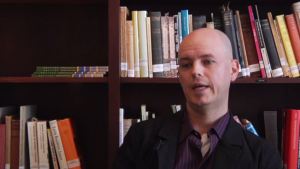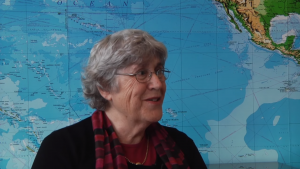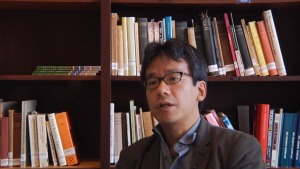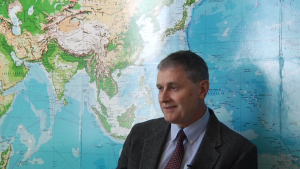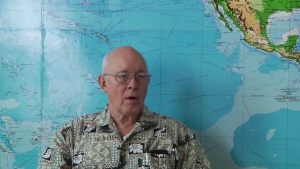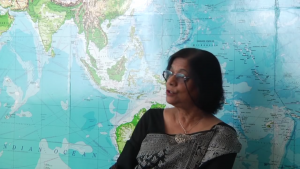Lessons from Rebuilding Kobe after the 1995 Hanshin Earthquake
Memo #40 – The Great Hanshin earthquake devastated Kobe on January 17, 1995, leading to 6000 deaths and the destruction of over 200,000 homes. Beyond immediate reconstruction and recovery, the book, “Reconstructing Kobe: The Geography of Crisis and Opportunity” examines the long-term planning implications of the disaster. What were the city’s objectives in rebuilding urban areas? How were the hundreds of thousands of displaced people housed? How was Kobe’s urban economy affected?
Interview with Dai Qing, the Environmental Activist, Investigative Journalist, and Writer
Memo #39 – The indomitable Dai Qing (戴晴) has chosen to demand answers to uncomfortable questions and bring to account a system that dreams big dreams but harms those it is meant to serve. Ms. Dai is perhaps best known for her active opposition to the Three Gorges Dam project, which led to her imprisonment for ten months in 1989. Her new work with her long-term partners Toronto-based environmental NGO Probe International is an oral history of Beijing residents’ responses to their city’s water crisis. Rapid development has drastically reduced the capital’s water supply and sparked a massive new project to divert (highly polluted) water from the south to the north. This project would displace several hundred thousand people en route and promises to be at least as problematic and disruptive as the Three Gorges Dam.
Indonesian Handshake Controversy Exposes Challenges Facing Islamist Politicians
Memo #38 – Indonesia’s ‘handshake’ controversy made international news last week. To summarize: the Obamas were being greeted by Indonesian officials, and in the process, Michelle Obama shook the hand of an Islamist politician (and Minister of Communications and Information) named Tifatul Sembiring. Sembiring then went on Twitter to explain that the handshake was unwelcome and forced upon him. Video evidence clearly shows he was dissembling.
Japan’s Beer Industry a Window to the Past
Memo #37 – Japan’s microbrewing, or ji-biiru (地ビール) industry has gained increasing attention in recent years, fuelled by a host of entrepreneurs with both creative recipes and a flare for showcasing Japan’s lengthy history of beer production. Until 1900, Japan was home to well over a hundred small brewers, most of which lasted just a few years. The ji-biiru boom is once again witnessing a trend toward the production of many small, local craft beers. Many of these startups have dusted off old brands and labels, and are often claiming to have been “established in 1885” or thereabouts, when in fact they are new firms. This modest challenge to the market dominance of megabrewers like Sapporo, Kirin, and Asahi is fuelled by consumers’ preference for different or local flavours. It is prompting the leading firms to add similar products to their stable of established brands.
The Chinese People at War
Memo #36 – Dr. Diana Lary, Professor Emerita of History at the University of British Columbia speaks about her new book, the “The Chinese People at War”. The book looks at the impact of the War of Resistance Against Japan (抗日戰爭) (1937-1945) on the people of China. It was a period of extreme social upheaval. Society was torn apart in fighting, bombing, and occupation. Tens of millions of people were made refugees; people were displaced by fighting and by scorched earth actions. Families were separated and divided, not only by the conflict but by decisions on whether or not to accept the invaders and stay in the occupied areas.
Domestic and International Japanese Politics in the 21st Century
Memo #35 – In this interview, Dr. Masaru Kohno, Professor, School of Political Science and Economics, Waseda University, discusses the future of Japanese politics in light of recent developments. Japan’s new ruling party will continue to face constraints and challenges.
A Critical Introduction to Mao
Memo #34 – Dr. Timothy Cheek brought fourteen leading scholars together in A Critical Introduction to Mao to offer a critical evaluation of the life and legacy of Mao Zedong – China’s most famous leader of the 20th Century. These scholars, from different generations and from around the world, provide general readers with the information and tools necessary to make their own assessments of Mao, the revolution he led, and the society he helped to shape.
Asian Cultures in British Columbia
Memo #33 – Dr. Dan Overmyer, Professor Emeritus of Asian Studies at the University of British Columbia speaks about his new book, Asian Religions in British Columbia (B.C.). In this interview, he describes the inspiration to compile this book. Along with Dr. Larry DeVries and Dr. Don Baker, Dr. Overmyer aimed to organize a book that would be of value to people who are interested in Asian cultures, their impact in B.C., and the changing face of B.C. society.
Cooperative Management of Mekong River is Crucial for 70 Million People
Memo #32 – Cooperation is crucial to manage rivers that flow across national borders. States along the Mekong River – and their 70 million inhabitants – depend on the cooperation of their upstream neighbour, China.
Gender Issues in the Hindu Tradition
Memo #31 – Dr. Mandakranta Bose is a professor emerita at the Institute of Asian Research (IAR) at UBC. Her recent book, Women in the Hindu Tradition: Rules, Roles and Exceptions was the subject of an October interview in the Institute’s Behind the Book series.
